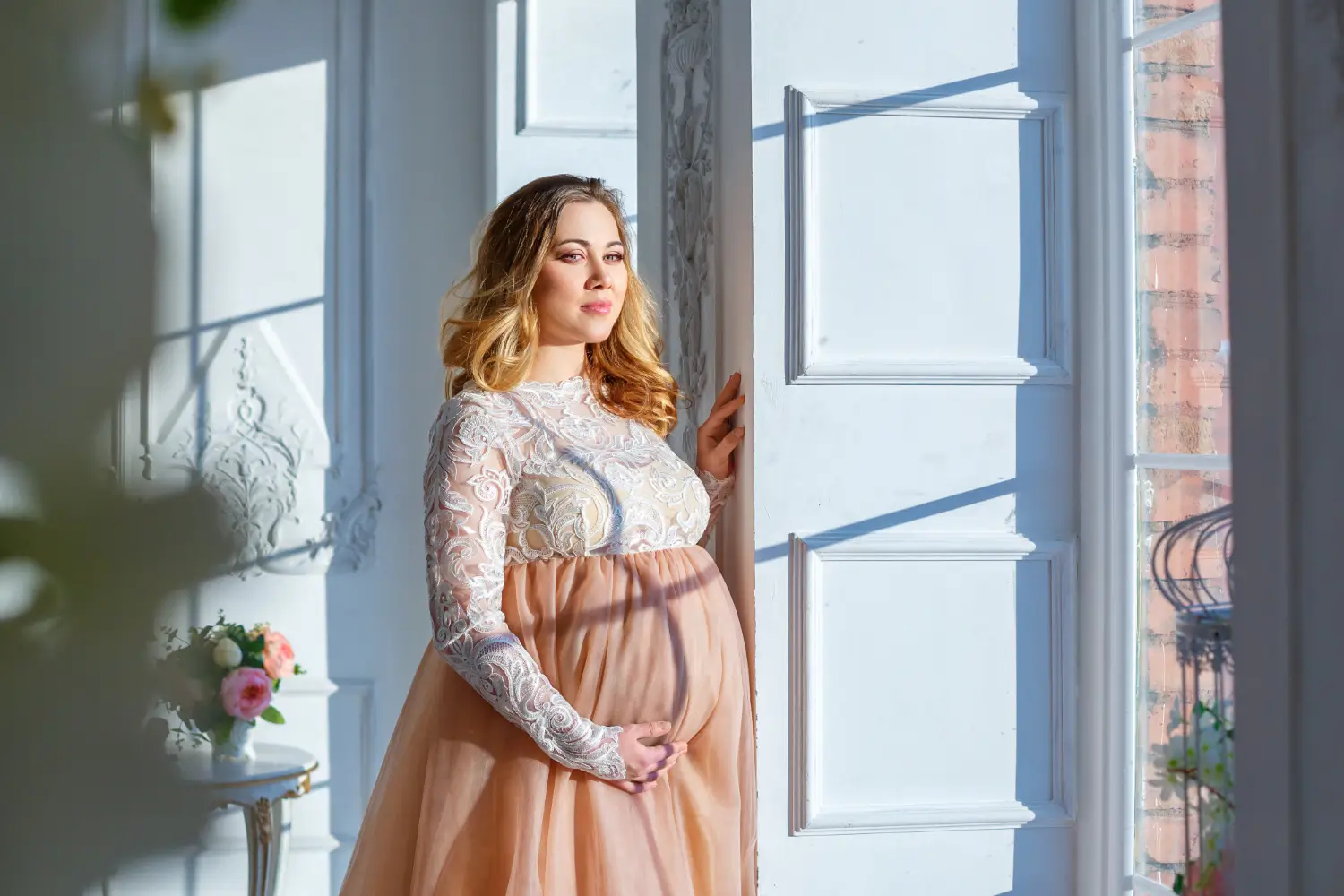Being an egg donor in NYC is a life-altering experience for most young women who hope to help others build a family. However, before you can take part in the egg donation process, you should have an idea of what the screening involves. The screening is not everything about medical examinations—it is about ensuring that you meet the donation requirements, your well-being is kept safe, and you’re fulfilling the requirements of an ethical and compassionate egg donation agency like Indian Egg Donors.
In this blog, we will be detailing every step of the screening process, how Indian Egg Donors helps you navigate through the process, and why our egg donation agency is one of the most trustworthy in New York.

Why Screening Matters in the Egg Donation Process
The screening procedure is the key to any successful egg donation program. Screening ensures that potential donors are genetically fit, emotionally sound, and healthy to donate. The goal is to protect both the donor and the parents-to-be and offer the best result.
Indian Egg Donors, being an ethical egg donation agency, has devised a comprehensive screening procedure that fully with FDA guidelines as well as fertility clinic standards.
If you are thinking about becoming an egg donor in NYC, you should be aware that screening is meant to be comprehensive but also caring—a comfort and safety above all else for you.
Step-by-Step Breakdown of the Egg Donation Screening Process
Initial Application and Interview
The process starts with a safe online application. You are asked to provide personal information, medical history, family history, and life choices on this form. After you have submitted it, an egg donation agency coordinator will call you for an initial interview.
This interview evaluates the reason behind your wish to be an egg donor, your availability, and your knowledge of how egg donation works. If you pass the preliminary donating eggs criteria, you advance to the next step.
Medical Evaluation
One of the most critical screening processes is the medical check-up. As an NYC egg donor, you will undergo a series of medical tests, which are:
- Physical check-up
- Blood tests to check hormone levels and infectious diseases
- Transvaginal sonogram to check ovarian reserve
- Drug and nicotine screening
Every test is coordinated at NYC’s top fertility clinics, ensuring precision and ease. Indian Egg Donors only partners with licensed professionals to ensure our donors’ safety.
Genetic Screening
Your genes are considered when going through the process of egg donation. A genetic counselor will identify whether or not you are a carrier for any inherited diseases. This protects the future child and reassures intended parents.
Our egg donation facility undertakes a review of all the genetic testing screens in full confidence and explains them in detail to each donor.
Psychological Evaluation
Emotional and psychological preparedness is the second most important aspect of egg donation requirements. The donor must undergo a consultation with a board-accredited psychologist or mental health counselor to discuss:
- Egg donation commitment awareness
- Attitude towards anonymity and disclosure
- Emotional preparedness to donate eggs
Being a professional egg donation company, Indian Egg Donors facilitates this process, not intimidating but informative. We make you comfortable and prepared.
Legal Counseling and Agreement
As a first step, prior to hormone therapy starting, legal contracts must be signed. The contracts protect you as well as the intended parents. Indian Egg Donors arranges a meeting with an attorney so that every egg donor in NYC is fully informed about her responsibilities and rights.
Key Donating Eggs Criteria You Must Meet
While every agency may vary slightly, Indian Egg Donors adheres to the nationally recognized donating eggs criteria, including:
- 19–30 years old
- Not a smoker or drug abuser
- Physically and emotionally healthy
- BMI of 18–28
- Regular menstrual cycle
- No hereditary medical condition
- Willingness to keep appointments and obey medical directives
Adhering to donating eggs is the most basic step towards becoming a successful egg donor in NYC, and Indian Egg Donors will be with you throughout your eligibility check.
How Indian Egg Donors Support NYC Donors
Indian Egg Donors is not just a platform where donors get matched with recipients. We are a full-service egg donation agency with a positive reputation for ethics, transparency, and personalized care.
Here’s how we help:
- Dedicated Case Managers: On call from day one to guide you every step of the egg donation journey
- Confidential Screening and Matching: Your complete anonymity is assured
- Premier NYC Medical Clinics: Only certified fertility specialists are used by us
- Fair Compensation: While beyond the scope of this article, we offer fair appreciation for your time and effort
- Legal Protection: All contracts are professionally reviewed and explained to you
No matter if you want to know more about the donating eggs criteria, how screening is done, or just need assurance of the egg donation process, Indian Egg Donors are here to offer answers.
What Happens After Screening?
If you pass all phases of screening and sign the necessary papers, you are now ready to go with the actual egg donation process. This includes:
- Hormonal stimulation (10–14 days)
- Frequent monitoring visits
- Egg retrieval (minor outpatient procedure)
- Recovery and follow-up care
Indian Egg Donors guides you through each step of the egg donation process, keeping you at ease, informed, and respected.
Why NYC Women Choose to Become Egg Donors
New York has a diverse, educated, and compassionate group of women—many of whom are ideal egg donation candidates. Becoming an egg donor in NYC gives you access to world-class fertility centers, state-of-the-art medicine, and a strong support network through Indian Egg Donors.
If you are a candidate for donating eggs and looking for a professional and ethical egg donation agency, we welcome you to begin your process with us.

Frequently Asked Questions:-
Q. What are the main donating eggs criteria I must meet?
Ans : You must be 19–30 years old, in good health, drug-free, with a healthy BMI, and regular cycles.
Q. How long does the egg donation screening process take?
Ans : The screening process takes around 3–4 weeks, depending on scheduling and medical work-ups.
Q. What does the psychological screening involve?
Ans : A professional counselor will assess your emotional readiness, understanding of the procedure, and enthusiasm for donation.
Q. Can I become an egg donor in NYC if I don’t live in the city?
Ans : Yes, Indian Egg Donors accepts donors from the surrounding area and accommodates travel and lodging if required.
Q. Will my information remain private with an egg donation agency?
Ans : Yes, certainly. Indian Egg Donors keeps every step of the egg donation process confidential.
Q. What happens if I don’t meet the donating eggs criteria?
Ans : If you are not eligible, we’ll let you know why and can recommend what to do next or when you may become eligible in the future.
Conclusion
The egg donation cycle begins with extensive screening, a critical process for ensuring a successful and ethical outcome. From assessment of the donating eggs criteria to psychological as well as legal advice, Indian Egg Donors is with you every step of the way.
If you are thinking of becoming an egg donor in NYC, Indian Egg Donors stands alone in support, openness, and professionalism. We are a leading egg donation agency, and we offer you the tools, facts, and sensitivity with which to make informed and empowering choices.
Be part of it today—apply to be an egg donor in NYC with Indian Egg Donors and change lives for the better in the most profound way.

Dr. Kulsoom Baloch
Dr. Kulsoom Baloch is a dedicated donor coordinator at Indian Egg Donors, leveraging her extensive background in medicine and public health. She holds an MBBS from Ziauddin University, Pakistan, and an MPH from Hofstra University, New York. With three years of clinical experience at prominent hospitals in Karachi, Pakistan, Dr. Baloch has honed her skills in patient care and medical research.










